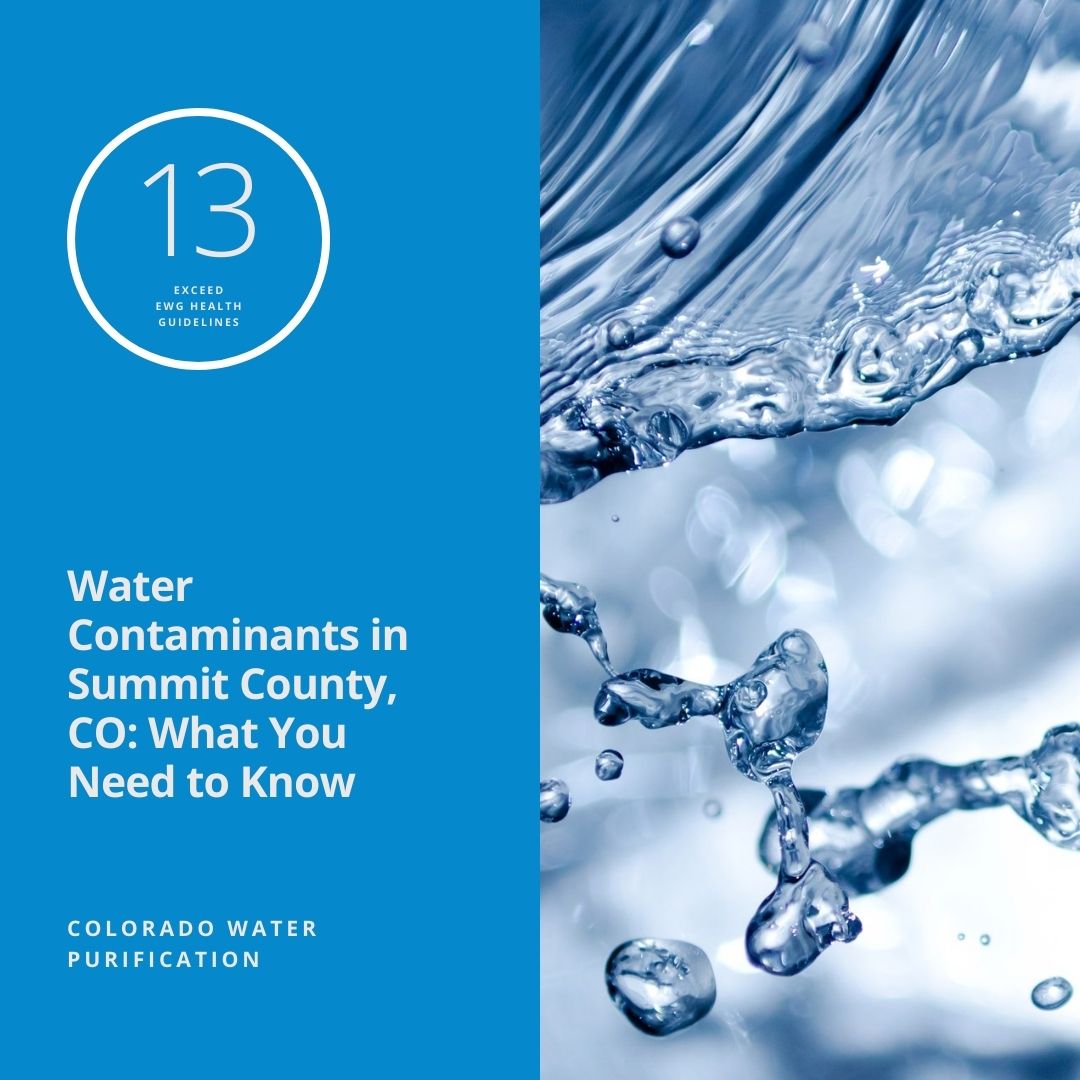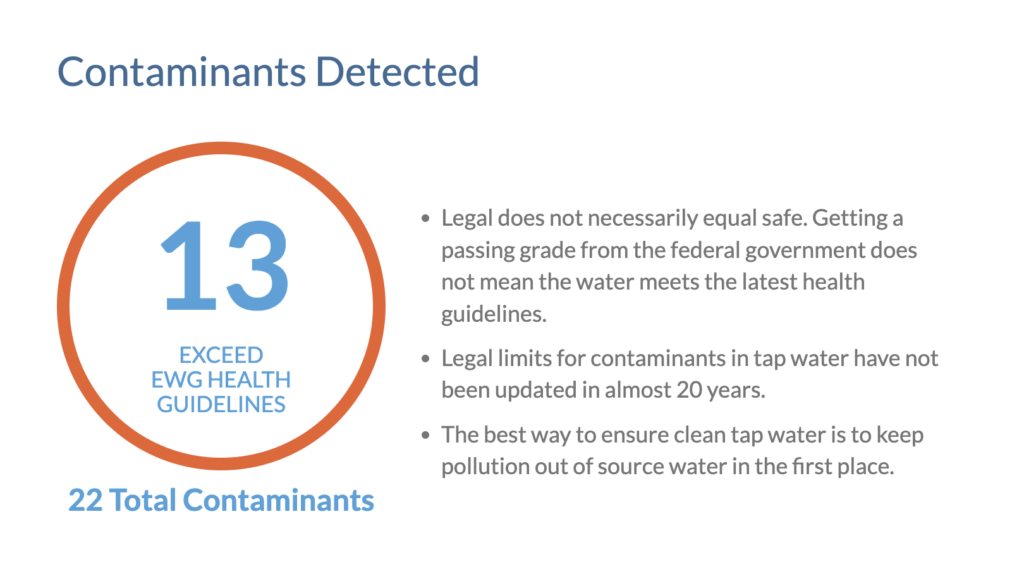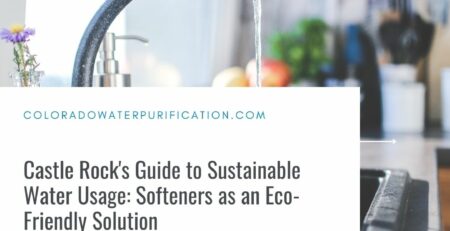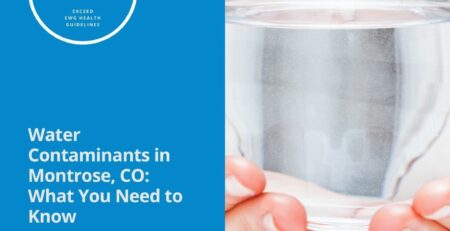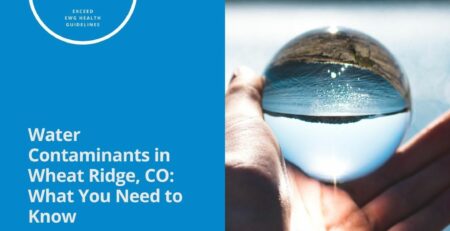Water Contaminants in Summit County, CO: What You Need to Know
Nick2023-09-18T15:25:29-06:00Summit County, Colorado is a beautiful place to live and visit. With its stunning mountain scenery, abundant outdoor activities, and charming towns, it’s no wonder that Summit County is a popular destination for people from all over the world.
However, it’s important to be aware that the water supply in Summit County contains a number of contaminants that can be harmful to human health. According to the Environmental Working Group (EWG), there are 13 water contaminants in the water supply of Summit County, Colorado.
Image of Water contaminants in Summit County, CO
Here is a list of the 13 water contaminants in the water supply of Summit County, Colorado, along with a short description for each contaminant:
- Arsenic: A naturally occurring metal that can be harmful to human health at high levels. Arsenic can cause cancer, skin problems, and other health problems.
- Barium: A naturally occurring metal that can be harmful to human health at high levels. Barium can cause nerve damage, muscle weakness, and other health problems.
- Chromium: A metal that can be found in the environment in both natural and man-made forms. Chromium is an essential nutrient in small amounts, but it can be harmful to human health at high levels. Chromium can cause skin irritation, lung problems, and cancer.
- Fluoride: A mineral that is added to drinking water in many communities to help prevent tooth decay. However, high levels of fluoride can also be harmful, especially to children under the age of nine. Fluoride can cause dental fluorosis, a condition that causes white spots on the teeth.
- Haloacetic acids (HAA5): A group of chemicals that are formed when chlorine reacts with organic matter in water. HAA5 have been linked to cancer and other health problems.
- Manganese: A naturally occurring metal that can be found in the environment. Manganese is an essential nutrient in small amounts, but it can be harmful to human health at high levels. Manganese can cause neurological problems, such as tremors and muscle weakness.
- Nitrate: A nutrient that can be found in fertilizers and manure. High levels of nitrate in drinking water can be harmful to infants, causing a condition called blue baby syndrome.
- Radium, combined (-226 & -228): A naturally occurring radioactive element that can be harmful to human health at high levels. Radium can cause cancer and other health problems.
- Selenium: A mineral that is essential for human health in small amounts, but can be harmful at high levels. Selenium can cause neurological problems, such as tremors and muscle weakness.
- Strontium: A metal that can be found in the environment. Strontium is an essential nutrient in small amounts, but it can be harmful to human health at high levels. Strontium can cause bone problems and other health problems.
- Total trihalomethanes (TTHMs): A group of chemicals that are formed when chlorine reacts with organic matter in water. TTHMs have been linked to cancer and other health problems.
- Uranium: A naturally occurring radioactive element that can be harmful to human health at high levels. Uranium can cause cancer and other health problems.
- Vanadium: A metal that can be found in the environment. Vanadium is an essential nutrient in small amounts, but it can be harmful to human health at high levels. Vanadium can cause respiratory problems and other health problems.
- Antimony: A naturally occurring metal that can be harmful to human health at high levels. Antimony can cause stomach problems, skin irritation, and other health problems.
It is important to note that the levels of these contaminants in the water supply of Summit County are below the EPA’s maximum contaminant levels (MCLs). However, the EWG Health Guidelines are more stringent than the EPA’s MCLs, and they take into account the potential health risks of exposure to even low levels of contaminants.
How can I reduce my exposure to water contaminants in Summit County, CO?
There are a few things you can do to reduce your exposure to water contaminants in Summit County, CO:
- Install a water filter. A water filter can remove many of the contaminants from your drinking water.
- Boil your water for at least one minute. This will kill any bacteria or viruses that may be present in your water.
- Drink bottled water. Bottled water is often filtered and purified, so it can be a good option if you are concerned about the quality of your tap water.

